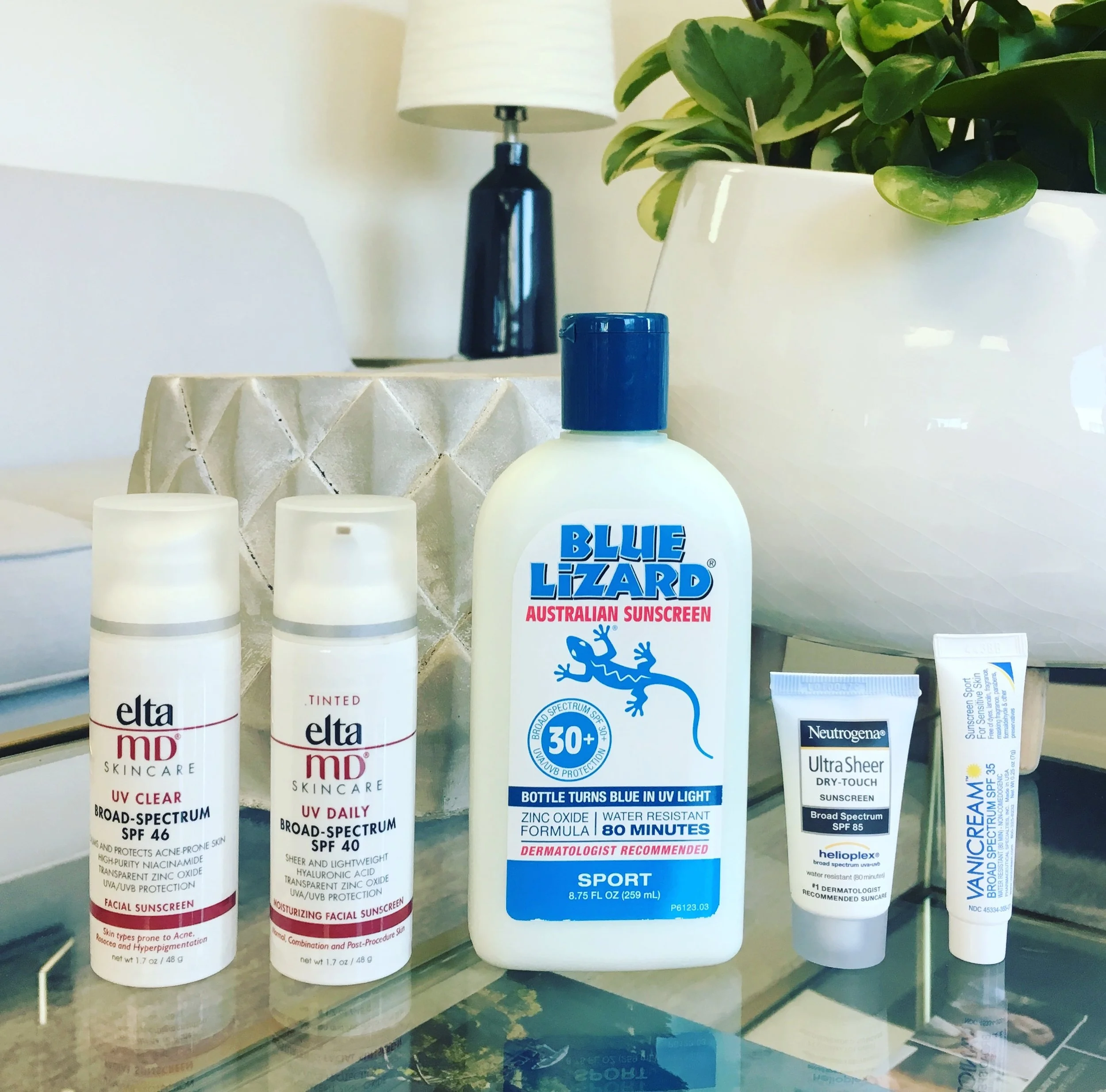With the news last week in national media that there is evidence that ingredients in sunscreen can be absorbed through our skin into our bodies — what does that mean as we approach summer? Should we still be wearing sunscreen?
According to our physicians, the answer is YES! You should still wear sunscreen!
Here’s why we still feel that sunscreen is useful. Absorption of sunscreen ingredients in miniscule quantities does not imply harm. While we are going to be paying close attention to this new area of research, at this point there is no evidence to support that sunscreen usage increases risk of internal organ cancers, and there is also no evidence to support that sunscreen usage causes endocrine disruption.
That being said, sunscreen has always been best used as a last line of defense from the sun. The rules for sun protection still hold true and right now is a timely moment to review those.
Avoid mid-day sun — Dermatologists ALWAYS recommend that you avoid being outdoors in diret sunlight during the middle of the day. This is when the sun’s rays are the most harmful and no amount of sunscreen is going to overcome the amount of sun damage that will occur with just 1-2 hours of exposure during this time window. At the beach? Go inside between 11 and 2 — eat lunch, take a nap, watch TV, or read a book — and save your skin at the same time.
Seek Shade — When you need or have to be outdoors, seek shade whenever possible. If your kids play baseball and you have a game on Saturday at noon, obviously you aren’t going to stay home. But try to sit in the shade — bring an umbrella, set up your chair under a tree, etc.
Wear Sun Protective Clothing — This is so important. UPF swimwear and sportswear will do a much better job of protecting your skin from the sun than sunscreen ever will. Invest in a few rash guards and spf sports wear shirts and perhaps pants and your skin will thank you later. This advice also means wear a hat and sunglasses whenever you can!
Wear spf 30+ to Exposed Skin — When you have to be outdoors, and you can’t sit in the shade, put on your sunscreen! Anything spf 30 or higher — if you have a history of melanoma and are going to be at the beach, you need to be wearing a higher spf — we recommend 85.
So you can see, if you are following the above rules for sun protection, your sunscreen usage is actually going to be greatly minimized. Not only will your skin be better protected, but you will also save yourself unnecessary chemical exposure.
The last point we would like to make is that UV light is certainly CARCINOGENIC. Unfortunately we diagnose many, many new cases of skin cancer each week including malignant melanoma. While the research is still being done on the safest and most effective sunscreen ingredients, dermatologists are always going to recommend sunscreen as one of your effective options in protecting your skin from the sun and minimizing your risk of skin cancer.

